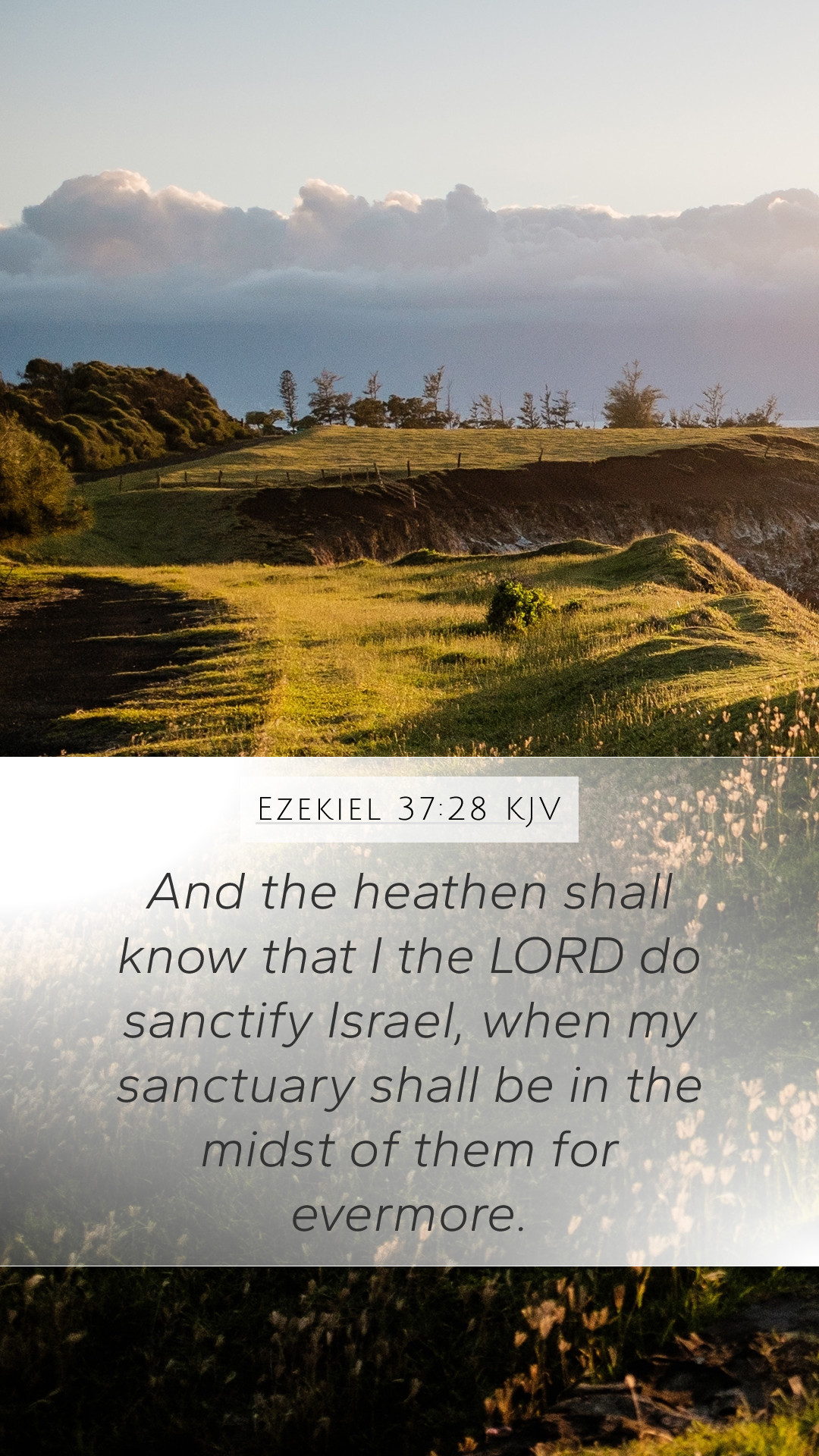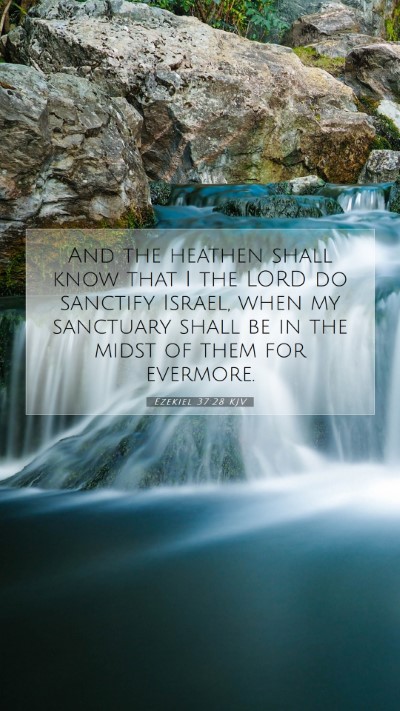Bible Verse Meaning: Ezekiel 37:28
Verse: "And the nations shall know that I am the Lord, that I sanctify Israel, when my sanctuary shall be in the midst of them for evermore." (Ezekiel 37:28, KJV)
Overview
This verse concludes a profound prophecy in which God assures His people of restoration, unity, and the establishment of His presence among them. Ezekiel, the prophet, underscores the themes of divine sanctification and the ultimate realization of God's dwelling with His people.
Summary of Insights
-
Divine Acknowledgment:
Both Matthew Henry and Albert Barnes emphasize that the nations will recognize God's sovereignty through His acts in Israel. The proclamation of God being known by the nations underlines the universality of God's plan for Israel as a beacon to the world.
-
Sanctification of Israel:
Adam Clarke interprets the phrase "that I sanctify Israel" as God's commitment to purifying and setting apart His people. This action reflects God's grace as He calls them back to Himself, offering forgiveness and renewal to His covenant.
-
God's Sanctuary Among Us:
The sanctuary represents God's presence and is a significant theme throughout Ezekiel. The promise that His sanctuary will be among them forevermore signifies a restoration not just in terms of geography but also in spiritual relationship and community.
-
Eschatological Implications:
Commentators see this verse as projecting into future fulfillment, where the establishment of God's Kingdom includes a new and everlasting relationship not only with Israel but extending to Gentile nations, demonstrating the inclusivity of God's redemptive work.
Detailed Commentary
Ezekiel 37:28 serves as a climactic point in the chapter that speaks of the resurrection of Israel - from the valley of dry bones to restoration as a nation. Biblical exegesis here reveals how the restoration is intended not only to renew Israel after exile but also to manifest God's holiness to surrounding nations.
Henry's commentary reflects that this verse encourages believers by affirming God's unchanging presence. The imagery of God's sanctuary being established among His people evokes a sense of belonging and safety, illustrating the relational aspect of God's promises. It shows God dwelling intimately within His people, contrasting the earlier abandonment experienced during their disobedience.
Barnes elaborates that the understanding of God sanctifying Israel points towards a future where His people are not just restored but are also a symbol of divine intervention in human history. The universality of God's salvific plan implies that His actions will testify to His character and intentions, prompting nations to turn to Him.
Clarke adds that this verse invites readers to experience the fulfillment of God’s promises through personal engagement with Scripture. The accessibility of God's word in our lives parallels the restoration described, leading to a deepened appreciation of individual and communal worship through the sanctuary of His presence.
Application in Daily Life
This verse challenges believers in their Bible study insights and practices. Here are some applications:
- Personal Reflection: Consider how God is sanctifying you in your life, helping you to grow in holiness and purpose.
- Community Worship: Engage in communal worship where the presence of God is acknowledged. Participate in church via Bible study groups focusing on restoration and sanctification themes.
- Witnessing: Understand your role in making God known to others. Reflect on how your testimony can serve as evidence of God’s work in your life.
Cross References
- Isaiah 60:3: "And nations shall come to your light, and kings to the brightness of your rising."
- Ezekiel 36:23: "And I will sanctify my great name, which was profaned among the nations."
- Revelation 21:3: "Behold, the dwelling place of God is with man. He will dwell with them, and they will be his people."
Concluding Thoughts
Understanding Scripture through the lens of Ezekiel 37:28 provides richness to personal faith and communal identity. With diverse interpretations and applications, believers can draw closer to God, understanding His sanctification process and His promise to dwell among us. The significance of this verse resonates with those seeking Bible verse meanings and reflects the heart of God in drawing all nations to Him through His chosen people.


